The Independent's journalism is supported by our readers. When you purchase through links on our site, we may earn commission. Why trust us?
14 best feminist books to read ahead of International Women’s Day 2025
From 20th-century classics to modern-day manifestos, our suggestions run the gamut
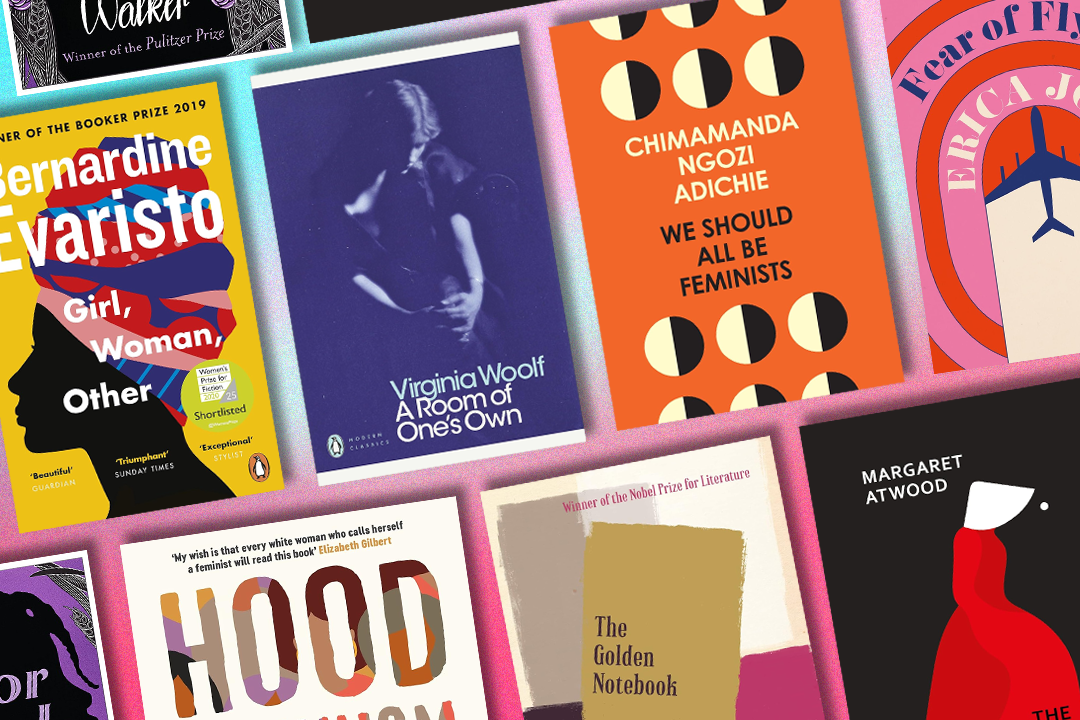
Now in its fourth wave, the feminist movement has achieved a great deal over the past 100 years, and we have its literary canon to thank for a lot of it.
From Virginia Woolf and Doris Lessing’s seminal writing in the 20th century to Margaret Attwood, Caitlin Moran and Chimamanda Ngozi Adichie’s contemporary musings on womanhood, feminist books address everything from financial independence and motherhood to intersectionality and gender politics.
And while some books champion the progress made and offer a snapshot of a moment in history, others continue to draw awareness to just how far the movement still has to go.
Whether you’re looking to widen your own understanding of what feminism means, broaden someone else’s horizons or enlighten a slightly antiquated loved on, we’ve got you covered with our reading list.
How we tested
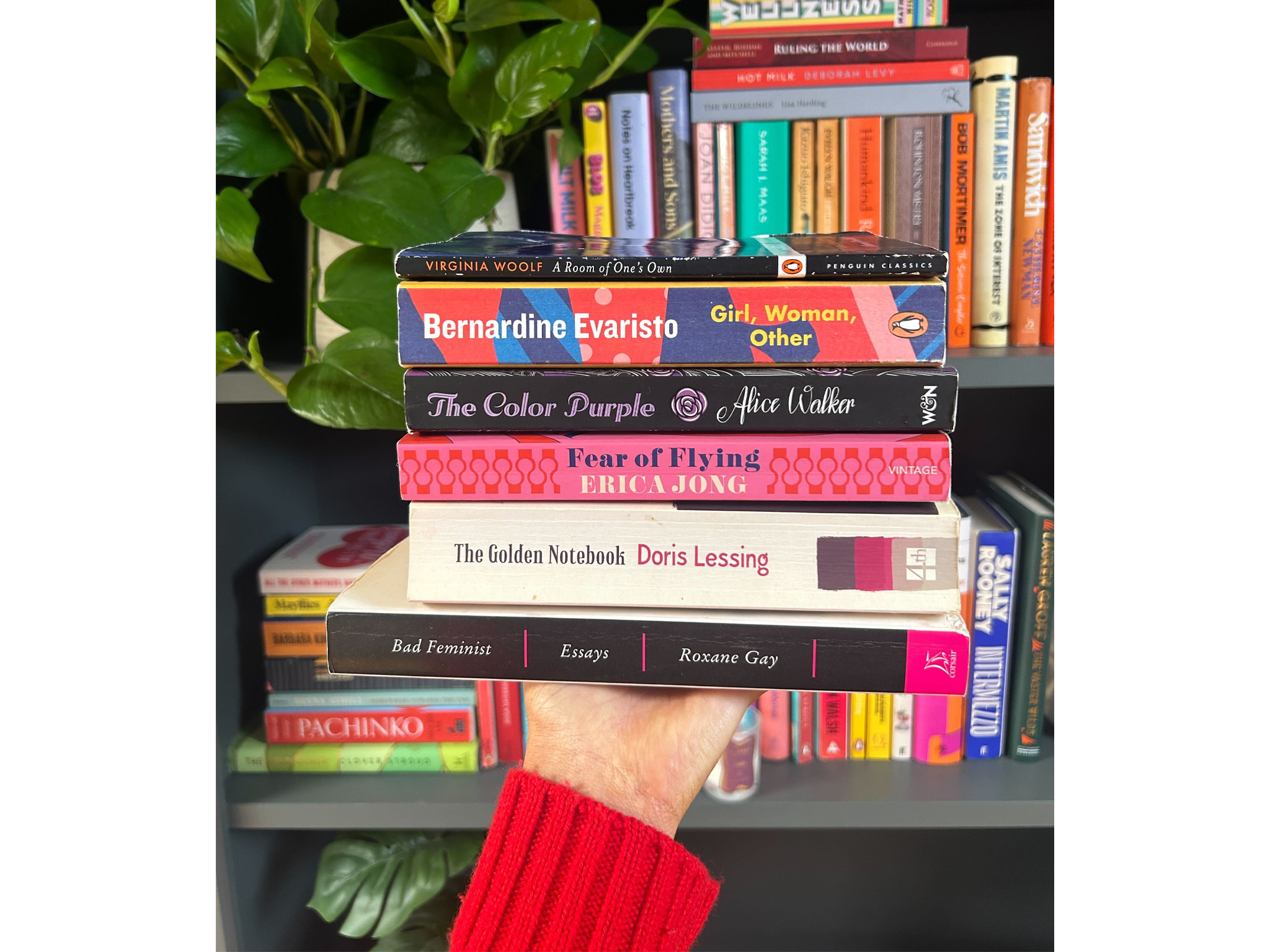
To mark International Women’s Day 2025, we’ve rounded up books that not only reflect what it means to be a woman today but also help demonstrate how far the feminist movement has come, as well as classic 20th-century works that proved revolutionary at the time. There’s an exhaustive selection of feminist tomes out there to educate, galvanize and inspire – here’s a selection of some of the best.
The best feminist books for 2025 are:
- Best overall – ‘We Should All Be Feminists’ by Chimamanda Ngozi Adichie: £7.35, Amazon.co.uk
- Best novel – ‘Girl, Woman, Other’ by Bernadine Evaristo: £5.80, Amazon.co.uk
- Best classic – ‘A Room of One’s Own’ by Virginia Woolf: £5.99, Waterstones.com
- Best dystopia – ‘Handmaid’s Tale’ by Margaret Attwood: £9.49, Bookshop.org
- Best memoir – ‘How to Be a Woman’ by Caitlin Moran: £9.19, Amazon.co.uk
1‘We Should All Be Feminists’ by Chimamanda Ngozi Adichie, published by HarperCollins

- Best Feminist book overall
Just as personal and powerful as Virginia Woolf’s 20th-century essay A Room of One’s Own, Chimamanda Ngozi Adichie’s contemporary text is adapted from her TEDx talk of the same name. A feminist critique of the 21st century woman, the writer explores inclusion, intersectionality and awareness within the movement while drawing on her own experiences as a woman growing up in Nigeria, living in the US and abroad.
Adichie’s manifesto carries the same witty and conversational tone as her bestselling fiction and serves as a rallying cry for unity. At just 64 pages, this pocket-sized book is an ideal introduction to modern feminist thought.
2‘A Room of One’s Own’ by Virginia Woolf, published by Penguin

- Best Feminist classic
Hugely significant at the time of its release, Virginia Woolf’s 1929 extended essay addresses everything from the necessity of women’s financial freedom to the situations of female authors such as Jane Austen and the Bronte sisters. Examining the educational, social and financial disadvantages that women have faced throughout history, the central gist of Woolf’s feminist critique is that: “A woman must have money and a room of her own if she is to write fiction.”
Through the use of metaphors such as the tragic story of Shakespeare’s fictional sister Judith, Woolf explores the history of marginalised women and the male constructs that have held them back – from inheritance bars and educational exclusion to the expectation of marriage and childbearing. Essential reading for anyone looking to understand the position of women 100 years ago, as well as the progress that’s been made since.
3‘Girl, Woman, Other’ by Bernadine Evaristo, published by Penguin

- Best Feminist novel
Joint winner of the 2019 Booker Prize, Bernadine Evaristo’s vast novel follows 12 British women over 100 years, through different generations and across social classes, to tell an intersectional story of British and black womanhood and feminism. Following a playwright, university student, house cleaner, school teacher and more, each character has their own chapter and their lives intertwine in various ways – whether that be as friends, relatives or acquaintances.
Exploring themes of racism, politics, patriarchy, gender and sexuality, Evaristo’s novel is masterfully assembled and riveting until the very last line. The thoroughly contemporary story is an engaging and ideal entry point into what it means to be a woman today.
4‘Bad Feminist’ by Roxane Gay, published by Corsair

- Best Book of essays
As the title suggests, Roxane Gay’s collection of essays explores all the contradictions, nuances and difficulties of being a modern-day feminist – such as wanting independence but equally wanting to be taken care of, or loving rap music but being offended by misogynistic lyrics. At its heart is Gay’s profession to being a “bad feminist” and a “mess of contradictions”.
Are you a good feminist if you like pink, read Vogue, wear dresses, shave or possess no knowledge about cars? Gay asserts of course you still are, despite all the mixed messages of society. Covering the TV show Girls, Chris Brown, Black women’s representation in films such asThe Help, abortion and much more, Bad Feminist is a deep dive into what it means to be a feminist today.
5‘Handmaid’s Tale’ by Margaret Attwood, published by Vintage Publishing

- Best Feminist dystopia
A contemporary classic, Atwood’s fictional story is set in a dystopian near-future where a patriarchal, totalitarian and devout regime has overthrown the United States government and founded the Republic of Gilead. Exploring themes of female subjugation, the protagonist Offred is one of a group of “handmaids” who are assigned “commanders” – the ruling class of men – and forced to produce their children.
Though a work of fiction, Atwood wrote her foreboding tome through stitching together real-life examples of oppression. As such, the book serves as a chilling reminder of what women have experienced.
6‘The Golden Notebook’ by Doris Lessing, published by Harper Perennial

- Best Taboo-breaking novel
A pioneering novel of the 1960s, Doris Lessing’s account of a woman searching for personal, political and professional identity became entwined with the rising feminist movement which hailed it as a “bible”. The book follows novelist Anna Wulf – divorced with a young child – who struggles with writer’s block. In an attempt to remain sane, Anna records her experiences in four coloured notebooks: red for her communist-leaning political views, yellow for emotions, black for her writing life and blue for everyday events, while the fifth notebook – the golden notebook – pulls these strands together.
Lessing was one of the first women to write so boldly on topics such as menstruation and sex – both of which were still taboo – and this proved radical for women at the time, despite the author’s resistance to the “feminist book” label.
7‘Difficult Women’ by Helen Lewis, published by Jonathan Cape

- Best Feminist history
Part history, part manifesto, Difficult Women explores how pioneering and revolutionary women have often been unlikable and difficult – attributes that journalist Helen Lewis asserts have always been vital to feminism. Looking at the victories secured by 19th- and 20th-century feminists – including divorce, education, sex, voting and abortion rights – and the women behind them, Lewis tells a more sordid history of the movement.
From working-class suffragettes who advocated for bombings and arson; to a pioneer of the refuge movement who became a men’s rights activist; to the founder of the first birth-control clinic, who was also anti-abortion and a Hitler admirer, Lewis recounts the fury, contradictions, anger and violence behind progress. Engaging and witty, this history of feminist fights will keep you gripped to the last page.
8‘How to Be a Woman’ by Caitlin Moran, published by Ebury Press

- Best Feminist memoir
One of the most distinctive voices in contemporary feminism, journalist Caitlin Moran brings wit, humour and punchiness to her 2011 memoir, How to Be a Woman. Documenting her early life, adolescence and mid-thirties, Moran weaves through themes of feminism and truths of womanhood, commenting on everything from the feminist importance of bras to Brazilian waxes, abortion, workplace sexism, the pressure to have children and eating disorders.
9‘Ain’t I a Woman’ by bel hooks, published by Pluto Press

- Best History of black feminism
Essential reading for understanding the history of black women in America, bel hooks wrote her classic 1981 text Ain’t I a Woman while still an undergraduate at university. Her study follows black women from the 17th century, after emancipation and through to the present day. It was one of the first texts to address intersectionality in feminism and the overlooked oppression of marginalised black women.
Hooks argues that race, class, gender, oppression and subjugation are all intertwined, and illustrated this alongside her own moving personal accounts. Provocative and galvanising, the feminist voice in the Black Lives Matter movement has its roots in Ain’t I a Woman.
10‘Hood Feminism’ by Mikki Kendall, published by Bloomsbury

- Best Intersectional feminist book
Building on bel hooks’s work, Mikki Kendall’s Hood Feminism explores contemporary intersectional feminism and how the mainstream movement neglects to acknowledge differing experiences of race, class, sexuality and disability. Kendall expertly and engagingly explains how we can’t talk about feminism without talking about intersectionality. Outlining how racial justice and feminism come hand in hand, Kendall argues what needs to be done to confront inequalities across education, violence, medical care, hunger and more.
11‘Fear of Flying’ by Erica Jong, published by Vintage

- Best Second-wave novel
One of the defining novels of second-wave feminism, Erica Jong’s book Fear of Flying embraced the sexual revolution of the 1970s. The tome follows 29-year-old poet Isadora – bored after five years of marriage – who decides to ditch her husband during a work conference in Vienna, embarking on a journey through Europe in search of the perfect, no-strings-attached fling. Witty, brazen and liberating, Jong’s novel’s was a controversial bestseller and one of the first novels to discuss women’s intellectualism and sexuality together, resonating with readers across the world.
12‘Woman & Power’ by Mary Beard, published by Profile Books

- Best Historical manifesto
In her manifesto Women & Power – adapted from two of her lectures – classicist Mary Beard looks at the history of gender imbalance in power. Tracing the cultural roots of misogyny back to ancient Athens and Rome, Beard uses examples such as Homer’s Odyssey, where Telemachus effectively tells his mother Penelope to “shut up”, to paint a history of women being silenced. Alongside similar myths and precedents of women in power – from Merkel to Thatcher – and Beard’s own experiences of sexism, this pocket-sized modern classic packs a big punch in just 115 pages.
13‘The Color Purple’ by Alice Walker, published by Orion Publishing

- Best Historical novel
The deep American South between the wars serves as the backdrop for this Pulitzer Prize-winning novel. Telling the story of Celie, a young black girl born into poverty and segregation, The Color Purple paints the harsh realities of life for African-American women in the 1930s. While the more haunting moments of the novel involve rape, children being taken away and the trappings of marriage, moments of joy and hope are equally as present as Celie begins to liberate herself from her past after meeting the glamorous musician Shug Avery.
14‘The Feminine Mystique’ by Betty Friedan, published by Penguin

- Best Second-wave feminist book
Published in 1963, Betty Friedan’s The Feminine Mystique became a catalyst for the second-wave feminist movement. The groundbreaking work brought mass attention to the malaise of middle-class housewives. Documenting their dissatisfaction with their role in society, Friedan’s book gave a voice to a large group of women who previously felt isolated in their experience. It challenged the societal belief that women’s fulfillment should come from domestic life and motherhood, which rung true with many women who felt unfulfilled with their lives. Though the book has been criticised for its narrow focus on educated white women who were married with children,The Feminine Mystique remains an important historical document and a snapshot of the feminist movement at that time.
The verdict: Feminist books
For a highly readable and intersectional look at contemporary feminism, Chimamanda Ngozi Adichie’s We Should All Be Feminists is the perfect introduction, while Mikki Kendall’s Hood Feminism and Roxane Gay’s Bad Feminist build on this intersectionality.
If you’re looking to engage with feminism through fiction, Erica Jong’s Fear of Flying is a brazen and liberating read and Bernadine Evaristo’s Girl, Woman, Other is a clever novel that offers a sweeping journey through 100 years of British womanhood, while Doris Lessing’s The Golden Notebook remains a groundbreaking novel.
Looking for more reading recommendations? We’ve rounded up the best new book releases















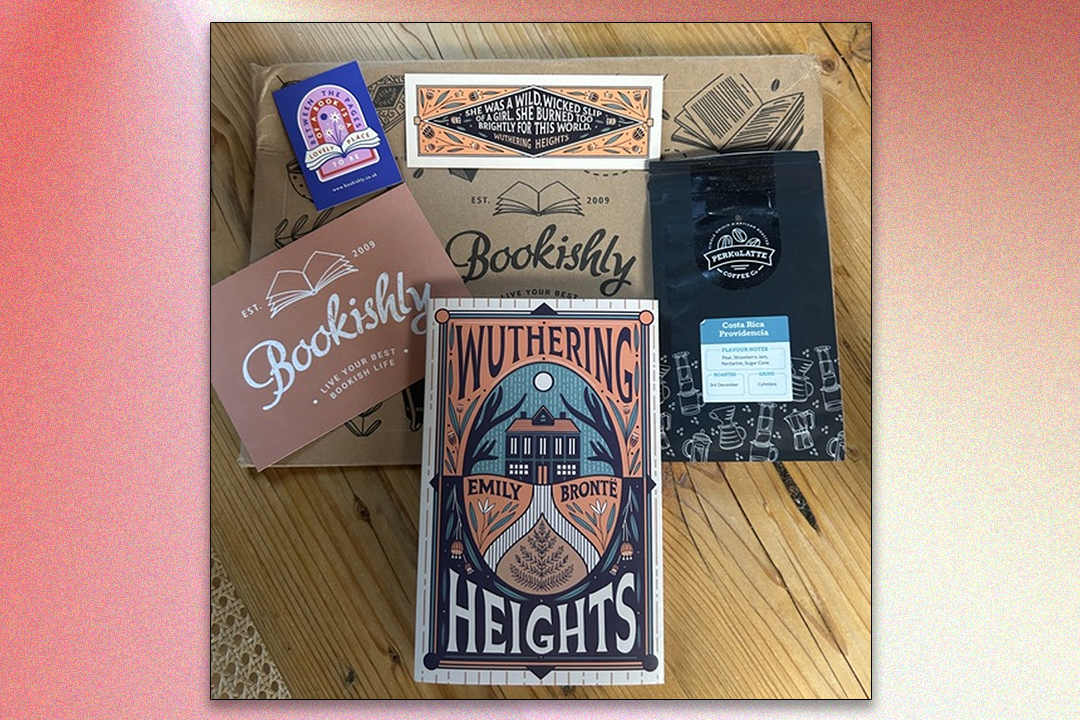
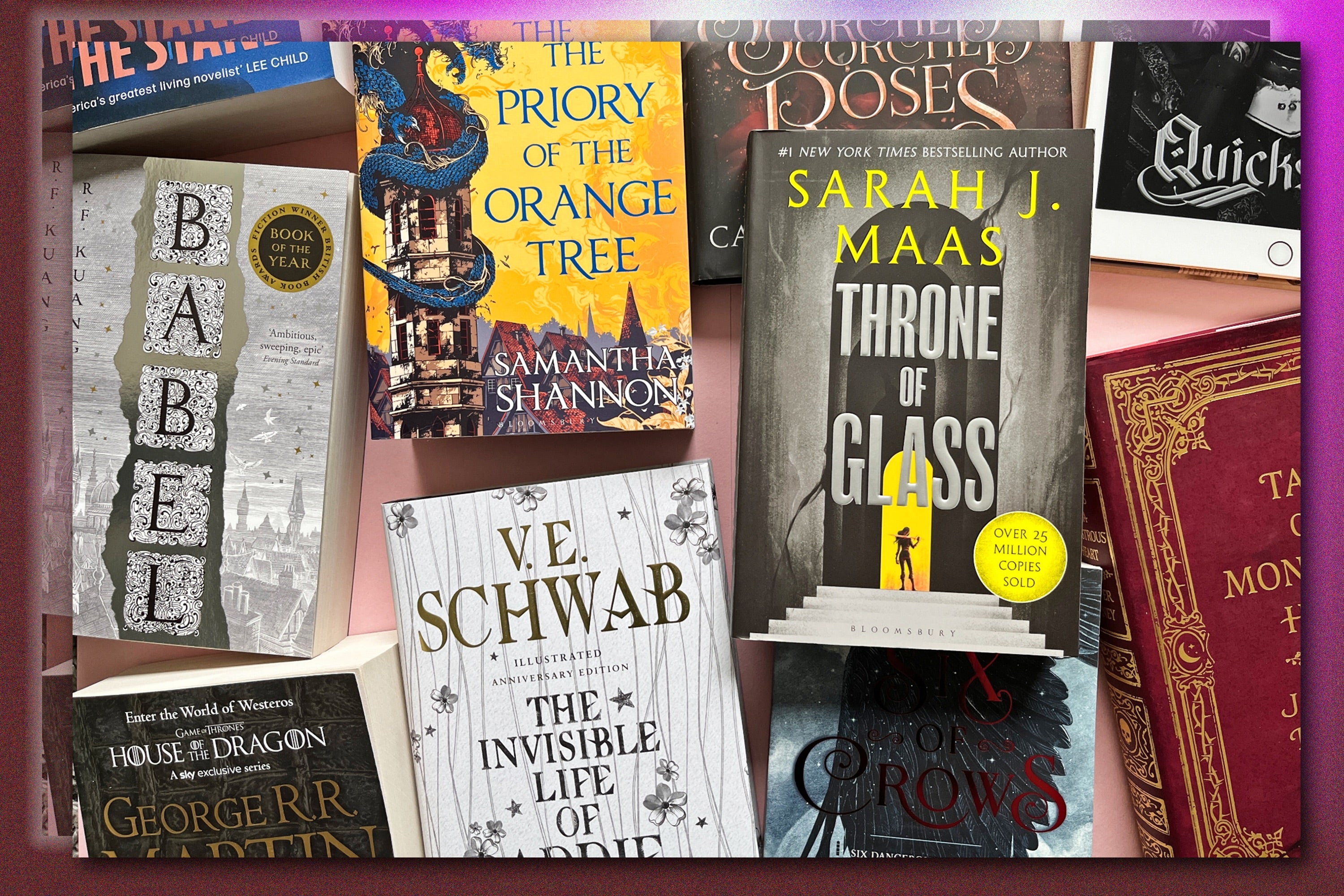
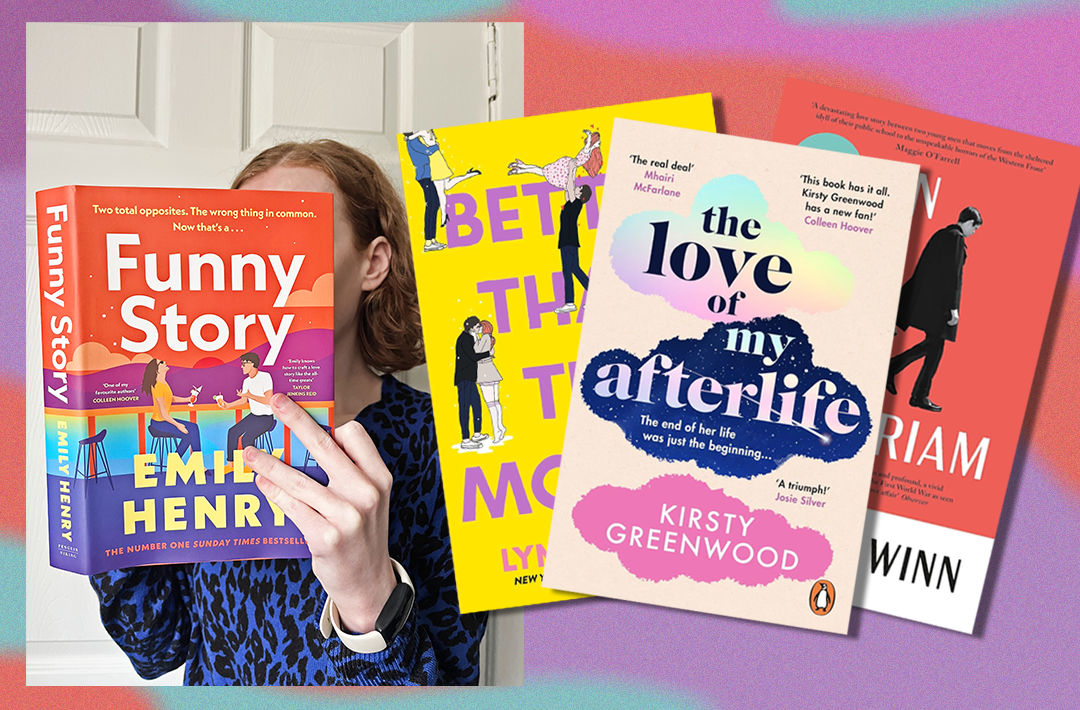

Bookmark popover
Removed from bookmarks